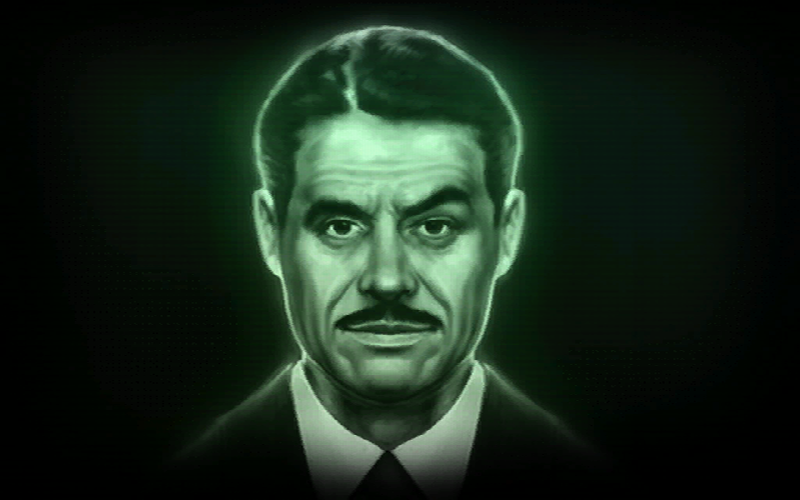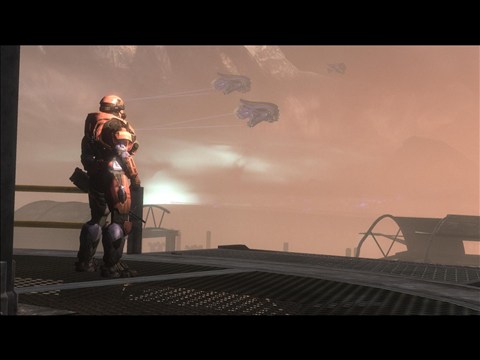Trending
Opinion: How will Project 2025 impact game developers?
The Heritage Foundation's manifesto for the possible next administration could do great harm to many, including large portions of the game development community.

Featured Blog | This community-written post highlights the best of what the game industry has to offer. Read more like it on the Game Developer Blogs or learn how to Submit Your Own Blog Post
A study on how video games are actually very limited when it comes to creating meaningful choices for the player.

So, I have finally gotten around buying myself a 3DS! God, playing Zelda: Ocarina Of Time again sure brings back a lot of memories. And I was lucky enough to find a copy of Fire Emblem - Shadow Dragon (remake of the first fire Emblem).
Now, even though it is my favorite Nintendo IP, Fire Emblem games are not very popular in France, and finding copies more than three months after the release of the game is pretty much impossible.
But when I happily told the few of my friends about my purchase, most of them answered me that they hated this game. Why? Because the only way to get some characters or bonus levels was to kill some of your party members.

Canas from Fire Emblem Blazing Swords
For those of you unfamiliar with these games, there are a few things that you should know before I move on with this article. During each game, you get to recruit 40 - 50 units for your army. Each of these units is unique, with its own and unique personnality (Each new Fire Emblem game brings a whole new load of charismatic, appealing and unforgettable characters (Canas, you remain my all-time favorite). Most of these characters have to be hired through very specific actions, that require the player to pay attention to a lot of small details - for example, if you know one of your characters is looking for his / her long time lost brother / sister, and you run into an ennemy unit that looks a bit like this character, then you have to send him there to unlock a dialog allowing you to hire said brother / sister. Out of these units, you'll only really use 15 - 20 of them during each playthrough, and the other ones will be unused. BUT most Fire Emblem players are very serious about hiring every bonus unit AND making sure they all survive (if one of your units dies, then it's over, you never see it again). Actually, they won't reckon having finished the game if they don't have every unit and every bonus level.
Now, you see where the problem is when the game requires that his players choose between having all the characters OR having all the bonus levels. You can't have both, you must give up one of these to get the other.
And I have to say, this has to be the most meaningful choice a videogame has ever faced me with. I cared enough about the outcome of this choice that it actually took me 5 - 10 minutes to decide myself. And I have to admit, for a little while, I hated this game for imposing me this choice.
Then I started thinking: I, like most gamers, would like to see videogames evolve towards more freedom for the player, especially through branching storylines. I have always wished for choices with real consequences, with less obvious outcomes... Choices that mattered. Then, why was I upset about having to choose this time?
Usually, choices in video games fall into two categories:
Gameplay choices, where you choose how you play the game. Even the most linear games offer a form of gameplay choice (do I snipe this guy or do I throw a grenade at him?), but some do try to make them more developped, especially RPGs where you get to pick your class, your skills etc. Some games offer very different gameplays depending on your choices, but for most of them, it's just a different animation when you smash the hit button and a different skin for your character.
Story choices, where your actions determine the story... In theory. Indeed, most of the time, either the choices are very manichean and have little to no influence on the game itself (Fallout 3 and Fable, I'm looking at you) OR are limited to a simple choice right before the final boss, with, in the worst cases, only one of these options considered as canon.

He was the best option, anyway
Most gamers consider that the little quality of choices offered are a consequence of the lazyness of game developpers. But even when a game tries to offer a more elaborate choice, such as Fallout: New Vegas and its four factions, I realized that I did not care so much about that choice. No matter which faction I side with, it will win and I will win. Of course, story-wise, each ending is very different, and we can even think that the fate of the whole country (or what's left of it, anyway) is at stake but at the end of the day, I will always be the clear winner of that war. I have seen very vivid debates about which faction was the best for the Wastelands, but they were only coming from a small minority of Fallout fans, while most other players just sided with this guy because he looked cool, or that guy because he was the first one they stumbled upon.
Now, what about a game where not all choices are good? A game where siding with one faction would lead to to defeat while the other faction would lead you to victory? A game where your choices are not always good? Wouldn't it be awesome? No.
Real life is filled with this kind of choices. People have to choose all day, every day. And none of these choices are clear or manichean. Do I go for the low paying but exciting job or the boring but high paying one? With which friend do I side with in this fight? Should I be honnest or protect her / him from the hurtful truth? These are Fire Emblem like choices: you never get everything, you never really win. If you want something, you must sacrifice something else. And your whole life is devoted to finding a right balance between all these choices.
People mostly play video games to rest from how tiring and stressful life is. When playing, you don't want to choose, you want to pick your favorite option. And if games are so relaxing, it's because you know that every choice will lead you to success, and failure comes immediately after a mistake, not ten hours later. Of course, you have some games with bad and good endings, but they only are different kinds of success (the success being the fact that you finished the game, played through every level and got pretty much everything that was to be gotten), and the bad endings are rarely that bad.
To conclude on this point, I would say that obviously, when it comes to storyline choices, you should always make sure that every option leads to success. The player should not give up something to get something else, since it's what they do all day long. The player only wants to pick his favorite way to victory, as nothing is more frustrating than failure. Of course, you can and should make the different options less manichean and the environment more reactive... Only if, of course, this serves the point of the game..png?width=700&auto=webp&quality=80&disable=upscale)
Still my favorite Ganondorf
There are many games that would gain next to nothing from branching storylines. Whenever I play Zelda, I want to beat the crap out of Ganon(dorf), not to have the option to side with him. There are many advantages to having a linear story with no choices, such as better character development, more controlled rythm etc. And let's not forget that making a branching storyline can be very expensive.
Halo Reach
Now what would be interesting would be a linear game where the main character loses in the end. This time, the player still feels he has succeeded, since he has finished the game, and you can try to create a moving story about how he indeed fails. But then again, you should make sure the game follows a more traditional scheme, with a climactic ending, a final boss or a final fight that the player wins. One good example is Halo: Reach, which is centered around the desperate struggle to defend Reach from the Covenants. From the beginning of the game, you know you will lose in the end. And indeed, the main character dies in the last level, after an heroic fact. But here, the exception is that he still succeeded somehow, by allowing Cortana to escape from the hands (?) of the Covenants.
One chance
Can a game explore failure? Well, only one example comes to my mind, and I wouldn't really tell it's a game. It is called : One Chance. Basically, you have six days left to live, and you get to choose how you send them. Of course this is an interactive digital experience, but it isn't fun nor challenging. I would still recommend that you try it, as it is pretty moving and well realized (here's the link if you want, it only takes five minutes and is completely free: http://www.newgrounds.com/portal/view/555181).Read more about:
Featured BlogsYou May Also Like